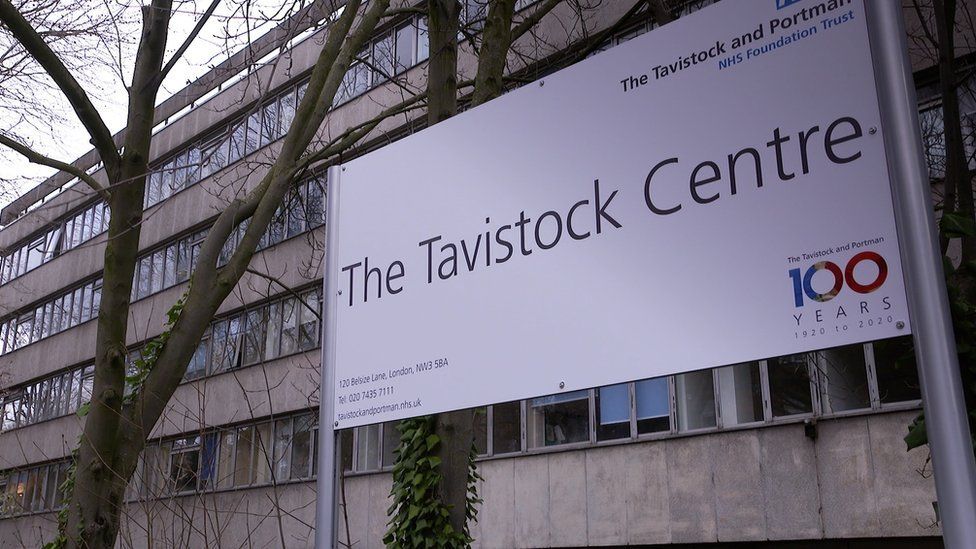Evidence for puberty blockers use very low, says NICE
- Published

The evidence for using puberty blocking drugs to treat young people struggling with their gender identity is "very low", an official review has found.
The National Institute of Health and Care Excellence (NICE) said existing studies of the drugs were small and "subject to bias and confounding".
The assessment of the evidence into the drugs was commissioned by NHS England.
It is part of a review into gender identity services for children and young people.
NHS England said the advice would be considered by the review and it would not be commenting further.
Puberty blockers, known scientifically as gonadotrophin-releasing hormone (GnRH) analogues, are prescribed to some young people with gender dysphoria - distress caused by a discrepancy between a person's gender identity (how they see themselves regarding their gender) and their sex at birth.
They work on the brain to stop the rise in sex hormones - oestrogen and testosterone - that accompany puberty.
These are the hormones that lead to changes in the body, such as periods starting, breasts forming or, in boys, their voice breaking.
The NICE evidence review looked at what impact puberty blockers had on gender dysphoria, mental health - such as depression, anger and anxiety - and quality of life.
NICE, which provides national guidance and advice to improve health and social care, said: "The quality of evidence for these outcomes was assessed as very low certainty."
The review sought to find out how treatment with GnRH analogues compared in terms of clinical effectiveness with other interventions that may be offered to young people with gender dysphoria.
These include psychological support, social transitioning to the desired gender - where a young person will identify as another gender by perhaps changing their pronouns and clothing, but does not take medication - or no intervention at all.
'Little data'
NICE found it was difficult to draw conclusions from existing studies because of the way they had been designed.
They were "all small" and didn't have control groups, which are used to directly compare the effect of different treatments.
There were other issues with the studies too, such as not describing what other physical and mental health problems a young person may have alongside gender dysphoria.
The review said there was "very little data" on any additional interventions - such as counselling or other drug treatments - the young people may have had alongside taking puberty blockers, and this could bias the results.
The impact of puberty blockers on bone density has been raised as a potential concern by some experts previously.
However, NICE found that without a "comparator group", it was not known whether any observed changes in bone density "are associated with GnRH analogues or due to changes over time".
Some argue that carrying out a controlled trial - which would provide better quality evidence - might be difficult because of the potential impact on mental health if treatment is withheld in one group.
NICE accepted this, but said offering psychological support to compare puberty blockers "may reduce ethical concerns in future trials".
The review found no evidence of cost-effectiveness of treatment.
Cross-sex hormones
NICE also reviewed the evidence base for gender-affirming hormones - sometimes known as cross-sex hormones.
These can be given to young people with gender dysphoria from age 16 in the NHS.
Oestrogen may be given to people who are registered or assigned male at birth, and testosterone to females, to start the development of the physical sex characteristics of the gender with which they identify.
The aim is to improve mental health, quality of life and body image.
The review found the evidence of clinical effectiveness and safety of gender-affirming hormones was also of "very low" quality.
"Any potential benefits of gender-affirming hormones must be weighed against the largely unknown long-term safety profile of these treatments in children and adolescents with gender dysphoria," NICE said.
Both documents were prepared by NICE in October 2020 and will now help inform Dr Hilary Cass's independent review into NHS gender identity services for children and young people.
Neither review includes recommendations and both constitute advice, rather than formal NICE guidance.
- Published30 March 2021
- Published19 June 2020
- Published12 October 2021